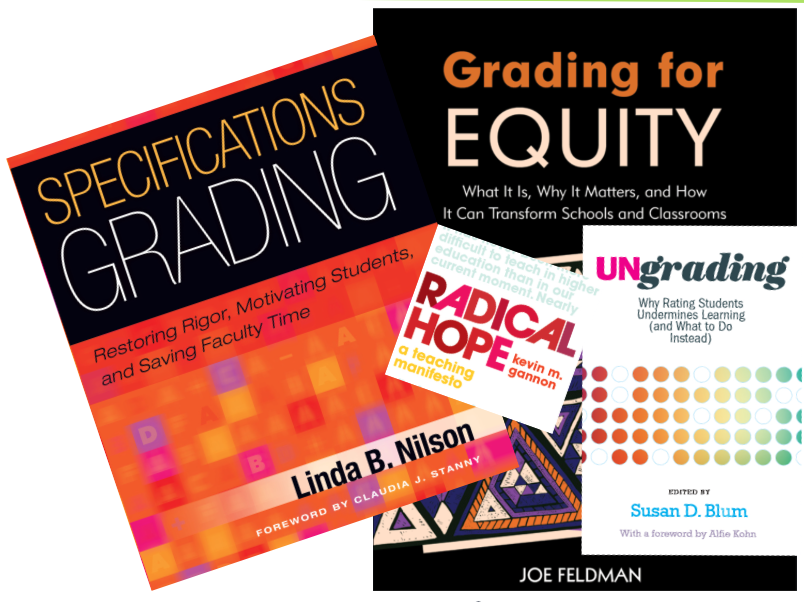A new alternative grading system has gained traction among some professors, who are starting conversations about it at URI. PHOTO CREDIT: Contributed by Anna Santucci
Since she started as a faculty development specialist at the University of Rhode Island in 2019, Anna Santucci has taken interest in implementing alternative grading methods.
Santucci is a part of the Professional Organization of Developers (POD) Network, the biggest educational development community that features nearly 1,400 members from approximately 30 countries globally, including the United States.
According to Santucci, the POD Network is a group of professionals that work to make educational spaces in higher education in the United States more equitable for all students.
In early 2019, she started consulting with Julianna Golas, a lecturer and academic advisor in human development and family sciences, about grading. The pair started to develop a learning community about alternative grading as co-facilitators.
Golas found that spending hours giving students feedback in a traditional grading system can be transitioned to a goal-oriented grading approach. She tried this out in an introductory-level HDF class where students could select their grades based on the assignments they completed.
“I allowed students to come in on day one and essentially pick their grade, and they do the work under a particular grade for the grade they want to earn,” Golas said.
She completely transitioned to this new grading system during COVID-19, since she said students barely looked at feedback from their work, and the pandemic provided her an opportunity to test the system.
After successfully integrating the grading system into her courses, Golas presented the grading system at the 2021 Annual Advancement of Teaching and Learning Faculty Showcase, an annual event hosted to discuss the latest innovations in teaching strategies and learning designs, according to their website.
Starting in September, Golas and Santucci coordinated the Grading for Learning: Empowering Students with Agency for Growth learning community that serves as a book club and hosts four discussions related to alternative grading methods. Based on the immediate demand for that community, Santucci initiated two separate groups with approximately 12 professors in departments ranging from liberal arts to STEM, along with one self-organized group of professors who could not make the other groups.
“We had a selection process because of the seats we had available,” Santucci said. “One cohort met September into October, and now we’re running a second cohort who’s meeting October into November.”
The discussions focus on the book “Ungrading: Why Rating Students Undermines Learning (and What to Do Instead),” which looks at alternative grading options and “going gradeless.” Santucci works to help professors understand alternative grading methods and how they can impact the educational experience.
“We create the space, and we offer the resources, but it’s really up to them to pick what can work for their specific context and go deeper into the work in a hands-on way, which is what I would advocate also for the students in their courses,” Santucci said.
Golas has found that alternative grading approaches are slowly gaining traction as the professors read about those systems, from books like “Grading for Equity” by Joe Feldman and “Specifications Grading” by Linda Nilson.
“I think what’s exciting about this point in time is there are a few faculty members who are really enthusiastic about this,” Golas said. “Their enthusiasm is kind of rubbing off on others and so it’s like a snowball– it does appear to be gaining traction.”
Based on their group meeting experience, Golas found that a few professors are looking to incorporate alternative grading discussions into their respective departments, including the College of Education and Professional Studies.
“For some of the professors, their motivation is ‘how do I share this with my colleagues in my department?’ and they’re creating their own opportunities to have a book club discussion in their department,” Golas said.
Beyond providing professors an opportunity to discuss alternative grading questions, Santucci has seen professors develop their alternative grading action plans with support from the Office for the Advancement of Teaching and Learning.
“They will most probably be implementing what they have proposed in their plans into next semester,” Santucci said. “Then during that semester, there will be opportunities to work with us to assess how it’s going and how to improve upon that moving forward.”
With two more scheduled meetings for the learning community in November, Santucci hopes that the professors continue to consider alternative grading options across URI.

